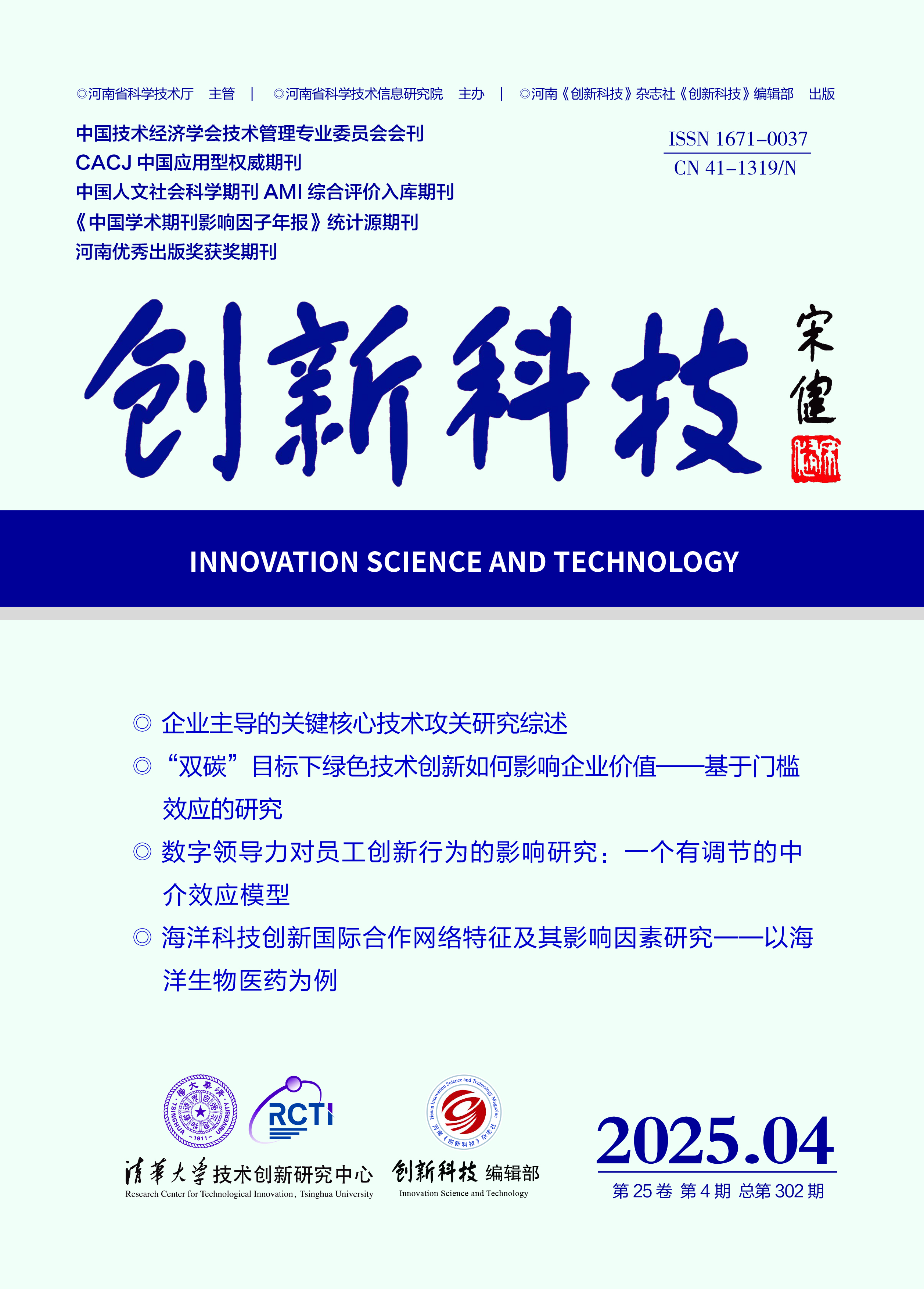INNOVATION SCIENCE AND TECHNOLOGY
Quick Search

All publication are peer-review
Peer review will take the from of double-blind review Judge objectively and impartially
There is no conflict of interest for the reviewer
Review articles shall be kept strictly confidential prior to publication
"New Quality Productive Forces and High-level Science & Technology Self-reliance" Column
Digital Government Leads the Rapid Development of New Qual⁃ ity Productive Forces: Mechanism Review and Path Analysis
Wen Zhiqiang1 , Wang Fei1, 2 , Hu Feng3
(1.National Governance Institute, Tianjin Normal University, Tianjin 300382, China; 2.Tianjin Institute of Emer⁃ gency Foreign Language Services, Tianjin 300204, China; 3.Jiangsu Institute of Science and Technology Devel⁃ opment Strategy, Nanjing 210042, China)
Abstract: The digital government is crucial for easing the challenges in the rapid develop⁃ ment of new quality productive forces and is a key driver for accelerating this development. This study, led by the digital government's role, builds a framework that examines the theoretical mechanism of "elements—logic" and explores the practical path of "dilemmas—approaches". On the theoretical plane, this study relies on Marxist productive force theory, examining the critical elements for the accelerated development of new quality productive forces across social, individual, and industrial dimensions. It also leverages emergence theory from complex systems theory to analyze the core logics driving this acceleration, including restricted generation, mutual shaping, and dynamic processes. On the practical front, the study begins with the real challenges in the digital government's comprehensive strategies for accelerating the development of new quality productive forces, in⁃ cluding issues in planning, regulation, deployment, and governance. It uses theoretical analysis to address these practical dilemmas. Based on this approach, the study offers four future develop⁃ ment suggestions that hold value both theoretically and practically. The study indicates that in examining the theoretical mechanism, emphasis should be placed on three main aspects: ①Personal aspects: precisely coordinated physical strength, cre⁃ ativity and innovation in intellectual capacity, and lifelong learning skills. ②Social aspects: flex⁃ ible and balanced socio-economic systems, accelerated integration of social technological inno⁃ vation, and diverse, collaborative social education and culture. ③Industrial aspects: the integra⁃ tion and upgrading of traditional industries, the growth of emerging industries through digital cross-disciplinary multiplication, and the cultivation of future industries with forward-looking research and development.
In terms of logic within the theoretical mechanism, attention should be given to the follow⁃ ing: ①The law of restricted generation: strategic development that provides guidance and direc⁃ tion, solidifying advantages, and continuous policies that provide protection and support. ②The law of mutual shaping and coexistence: a resilient cultural atmosphere, open and inclusive re⁃ source supply, and institutional mechanisms that evolve with the times. ③The law of dynamic processes: foresight in resilient safety, agile and classified responses, and real-time, efficient, and smooth feedback mechanisms. These elements and logics are crucial for understanding the theoretical underpinnings that drive the acceleration of new quality productive forces. Based on the theoretical mechanism of "elements—logic," the study suggests four paths to lead the acceleration of new quality productive forces and solve real dilemmas: ①Information: build a "horizontal—vertical" interactive government information network platform. ② Policy: develop a "long—short" term policy adjustment process. ③Resources: establish a "sensitive— intelligent" development resource allocation mechanism. ④Collaboration: create a "total—par⁃ tial" goal strategic planning action network. These recommendations are intended to provide a reference for the digital government in guiding the swift development of new quality productive forces and to serve as a reference for mitigating the real-world challenges and difficulties within this field.
Key words: digital government; new quality productive forces; complex systems; technologi⁃ cal innovation; high-quality development